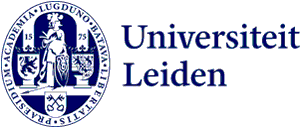
Bachelor thesis prizes Political Science 2021: the nominees
The thesis is the crown on the work of our bachelor students. As authors, they show their knowledge of the subject that they have chosen. They demonstrate what they have learned in their studies. And, in some cases, their thesis indicates which ambitions they have for further education or their career. That is why instructors of the Institute of Political Science attach great value to this ‘closing course’. Tradition has it that the best theses are nominated for a place in the Hall of Fame. Who are competing for the yearly thesis prizes? On 8 October 2021 (Politicologie/Internationale Politiek) and 22/25 October 2021 (International Relations and Organisations) respectively, the winners will be announced.
BSc Political Science: International Relations and Organisations—the shortlist
Babak RezaeeDaryakenari and Juan Masullo face the difficult task of picking a winner from a very strong field of contenders from the BSc Political Science: International Relations and Organisations. The outcome of the jury’s studies and deliberation will be announced on Friday 22 and Monday 25 October 2021, during the IRO graduation ceremony in the Academy Building in Leiden.
- Chiara Anfuso, ‘European Solidarity or Enlightened Self-Interest? An Analysis of the Eurozone and Corona Crises’ (supervisor: Adina Maricut-Akbik)
- Maite Bonifas, ‘The Influence of Leaders on the Outcome of Self-determination Movements — A Case Study of the Basque Country (supervisor: Feike Fliervoet)
- Paul Flachenecker, ‘The Inclusion of Environmental Factors in Peace Agreements: A Mechanism for Prolonged Peace or a Curse for Conflict?’ (supervisor: Babak RezaeeDaryakenari)
- Elisabeth Friedrich, ‘Liberals in Name Only? Exploring the Origins of Individual Level Illiberalism in Contemporary Democracies’ (supervisor: Joshua Robison)
- Leïla Gfeller, ‘Political Gender Equality and State Violence in Africa: The Impact of Sex Quotas on the Occurrence of Intrastate Conflict Events’ (supervisor: Leila Demarest)
- Valerie Kornis, ‘Unwrapping the “Africa Problem” of the International Criminal Court: African perceptions of legitimacy’ (supervisor: Tom Buitelaar)
- Nađa Petrović, ‘The impact of EU candidate status on the inflow of foreign direct investment’ (supervisor: Michael Sampson)
- Mauricio Rojas, ‘The Variation in Presence of Offshore Financial Centres in Non-Sovereign Territories: A qualitative analysis explaining the variation in the presence of offshore financial centres between non-sovereign territories within different metropolitan affiliations’ (supervisor: Wouter Veenendaal)
- Sunniva Tveitnes Homme, ‘Intersectional Identities and Land Dispossession: A Qualitative Analysis of How the Gendered Politics of Land Dispossession has affected Indigenous Women in Southeast Asia’ (supervisor: Neil Loughlin)
- Megan Zutt, ‘The Securitization of Legislation on Foreign Terrorist Fighters in the Netherlands: The Influence of Discourse on Policy-Making’ (supervisor: Niels van Willigen)
Prof. Dr. J.Th.J. van den Berg prize 2021 (best thesis Politicologie/Internationale Politiek): the shortlist
The jury for the programme BSc Politicologie and the specialisation Internationale Politiek, consisting of SPIL-delegate Marit van der Heide (student-member and chair), Joop van den Berg, Hilde van Meegdenburg and Marco Verschoor, is currently deep reading the nominated theses. The winner will be announced during the diploma ceremony on Friday 8 October 2021 in the Leiden Academy Building.
- Tobias Brandwijk, ‘Van likes naar voorkeurstemmen? Een onderzoek naar de invloed van Twitter, Facebook en Instagram op het aantal behaalde voorkeurstemmen tijdens de Tweede Kamerverkiezingen van 2021’ (supervisor: Joop van Holsteijn)
- Maud van der Endt, ‘FeMales in parliament — An explanation for the proportion of women in democratic parliaments’ (supervisor: Tim Mickler)
- Harold Janssen, ‘Taking priority on a packed agenda: economic conditions, public opinion and the attention to macroeconomic issues in the European Council’ (supervisor: Elias Carillo)
- Stéphanie van Mill, ‘Exploring the Immobility Side of Migration: Analysing the Case of Côte d’Ivoire’ (supervisor: Katharina Natter)
- Anouk Strijk, ‘Unpacking the drivers of jihadi migration: A comparative analysis between the Netherlands and Switzerland’ (supervisor: Katharina Natter)
- Cypriaan Sueur, ‘The Intelligence Community, Congress and Cybersecurity Policy: Cooperation in the latest security policy domain’ (supervisor: Carina van de Wetering)
- Pauline Tossings, ‘Rising economic inequality and the rise of secessionist parties in the European Union: What is the impact of economic inequality on the support for secessionist parties in the European Union?’ (supervisor: Shpend Kursani)
